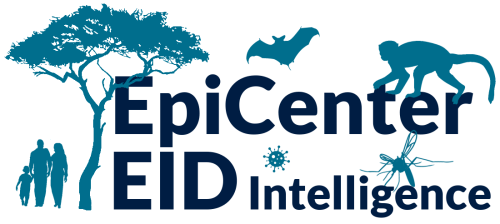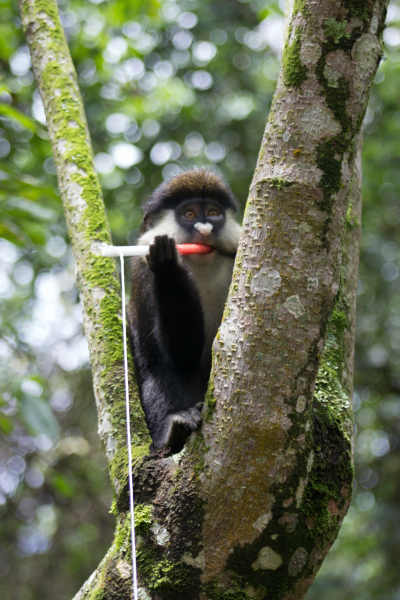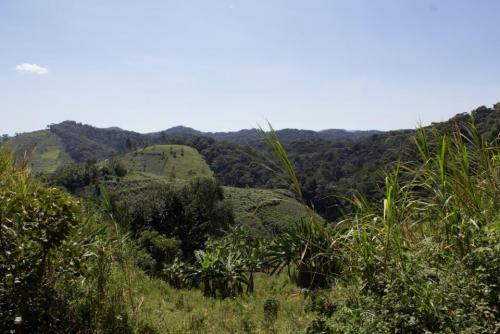
EpiCenter for Emerging Infectious Disease Intelligence
The EpiCenter for Emerging Infectious Disease Intelligence was established in 2020, as a part of the Centers for Research in Emerging Infectious Diseases (CREID) Network. This work is funded by the National Institute of Allergy and Infectious Diseases (NIAID) at the National Institutes of Health (NIH), award U01AI151814.

About
The EpiCenter for Emerging Infectious Disease Intelligence (EpiCenter) brings together a consortium of leading research partners to advance an understanding of viral emergence from wildlife in forests and rapidly urbanizing environments. The work enhances preparedness for disease emergence events in the Congo and Amazon Basin forest regions and supports response efforts at the source of emergence. Our multidisciplinary team has expertise in infectious disease epidemiology, virology, human and animal health, medical entomology, disease modeling, and capacity strengthening. Project activities include integrating human, animal, and vector surveillance data to enable insights into cross-species disease transmission and the ecology and evolution of emerging infectious disease. Our team facilitates collaborative responsiveness to emerging infectious disease risk at the local, regional, and international levels.
Our work focuses on arboviruses, filoviruses, and coronaviruses, as well as newly emerging threats that pose epidemic and pandemic risk. To evaluate disease transmission dynamics at the initial point of emergence in humans, surveillance is being conducted in forest and rural communities where virus spillover initially occurs from contact with wildlife. We will also investigate these viruses in the secondary stages of emergence, in urbanizing areas peripherally connected to forests, where viruses adapt to human-to-human transmission (by direct or vector-borne transmission). As part of the CREID Network, the EpiCenter will advance an understanding of ecological, immunological, and evolutionary mechanisms driving cross-species transmission dynamics of emerging viral threats. We will optimize innovative strategies to strengthen infectious disease research and improve preparedness to combat emerging diseases.
Where We’re Working
Our research sites span two distinct, but strategically-chosen ecosystems in which to investigate zoonotic disease emergence and transmission dynamics. The Congo Basin forest perimeter in Uganda and the Amazon Basin forest perimeter of Peru have a history of emerging and re-emerging infectious diseases, and are hotspots of biodiversity where zoonotic spillover can first emerge.
Environmental change in these biodiverse regions facilitates animal-human contact and adaptation of pathogens into new hosts. Species living near forest perimeters, such as primates and bats, can host viruses capable of spreading to humans. Mosquitoes can act as vectors to spread infection between humans and animals that may not have otherwise encountered each other. Research on evolution and adaptation of viral threats in these regions will shed new light on infectious disease dynamics along the spectrum of spillover and spread.


This page is maintained by EpiCenter members, independent of NIH/NIAID.
